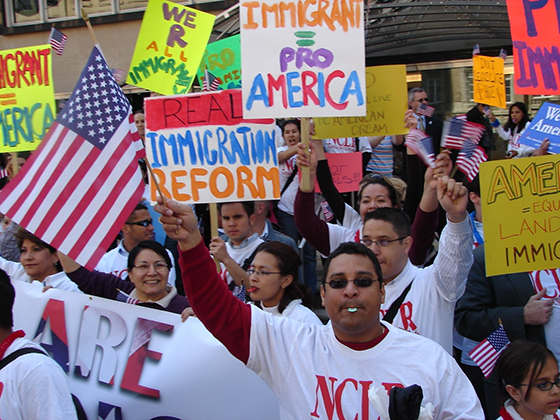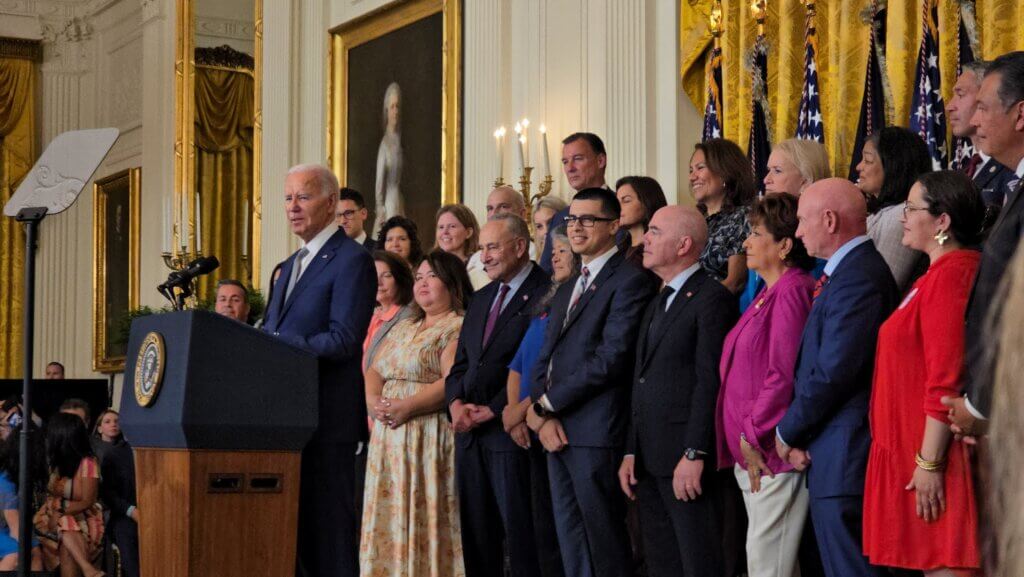This Week in Immigration Reform — Week Ending November 20
Week Ending November 20
This week in immigration reform: NCLR releases reports examining citizenship effects on financial habits; immigration executive action appealed to Supreme Court; and foreign entry programs under Congressional scrutiny.
NCLR kept the community informed with staff quotes in the Miami Herald and EFE.
“Latinos in Banking” profiles provide insight into immigrant financial habits: A series of newly released reports titled “Profiles on Latinos and Banking” shows barriers exist for noncitizens looking to participate in our country’s banking system. The data demonstrates that noncitizen Latinos are less likely to use Internet banking technology, are less likely to own a bank account, and are less likely to own credit cards than their citizen peers. Among survey respondents, language and understanding of financial products appeared to be the most significant barriers to access and participation. In a blog post, NCLR suggests “financial institutions must innovate with a goal of helping integrate new immigrants into the financial mainstream. Policymakers must examine and regulate high-cost and predatory financial products that strip wealth from communities of color.”
Obama administration appeals halted executive action to Supreme Court: On the one-year anniversary of President Obama’s executive action on immigration, the President’s lawyers appealed the currently-blocked program to the Supreme Court. President Obama’s expansion of the Deferred Action for Childhood Arrivals (DACA) program and creation of the Deferred Action for Parents of Americans and Lawful Permanent Residents (DAPA) program would provide administrative relief to an estimated five million people, but the U.S. Fifth Circuit Court of Appeals ruled to continue a hold on the program last week. “A divided court of appeals has upheld an unprecedented nationwide injunction against implementing a federal immigration enforcement policy of great national importance, and has done so in violation of established limits on the judicial power. If left undisturbed, that ruling will allow States to frustrate the federal government’s enforcement of the Nation’s immigration laws,” petitioners wrote to the Supreme Court. “The decision warrants immediate review.”
U.S. House, Senate examine foreign entry programs: In response to the terror attacks in Paris last week, Congress is seeking to tighten restrictions on entry into the country, albeit through different means. The House of Representatives voted to effectively halt the admission of Syrian or Iraqi refugees into the United States with the passage of H.R. 4038 yesterday. Under this bill the FBI, the Department of Homeland Security (DHS), and the Director of National Intelligence (DNI) must now all certify to Congress the safety of each individual refugee prior to entry into the country. The President “strongly opposes” the bill, threatening to veto it and saying it would “provide no meaningful additional security for the American people, instead serving only to create significant delays and obstacles in the fulfillment of a vital program that satisfies both humanitarian and national security objectives.”
Meanwhile, Senate Democrats authored a bill that focuses on the visa waiver program. The program currently allows citizens of 38 countries to enter the United States for up to 90 days without a visa, thus avoiding an in-person interview at an American embassy. Multiple terrorists, including at least one of the suspects of the attacks in Paris, are residents of countries participating in the program. The bill would eliminate the visa waiver program for anyone who has traveled to Syria or Iraq within the last five years, as well as require that biometric data be embedded in passports for people utilizing the program.




